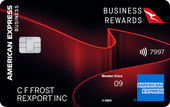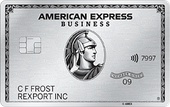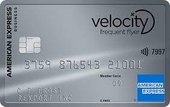They have become known as buy now pay later for adults and experienced a surge in popularity. If you're considering applying for a charge card, here's more detail on how they work and what they offer.
What is a charge card?
Charge cards look like credit cards. You can use a charge card for purchases in stores and online, plus for paying bills. However, unlike credit cards, your balance must be paid off every month and cannot be carried over.
Charge cards do not have a preset spending limit, although that does not mean you have infinite credit.
Who offers charge cards?
There are two main charge card issuers in Australia.
American Express
By far the most popular issuer of charge cards, American Express charge cards offer a combination of rewards, perks, and benefits. Their best-known charge card is the American Express Platinum Card, which is actually made of metal.
Diners Club
Lesser known and not widely accepted, Diners Club have a range of charge cards with high-end perks and rewards. Since most businesses in Australia do not accept Diners Club, they are issued with a Mastercard that's linked to the same account, giving cardholders a way to use their account more regularly and earn points.
What is the best charge card?
There are many types of charge card, but there is no overall best offer that will suit everyone's needs. Here's what to look for when you are comparing charge cards.
- Sign up bonus. Most charge cards come with a solid welcome bonus of points. You'll generally need to spend a certain amount on the card within a certain period of time in order for the bonus points to be deposited into your account. This is to discourage churning.
- Earn rate. The typical earn rate on a charge card is higher than on a rewards credit card. For example, you may be able to earn 2 points per $1 spent on a charge card versus 1 point per $1 spent on a similar credit card.
- Rewards program. Earning into Membership Rewards or Diners Club Rewards provides greater flexibility when booking travel since those points can be transferred to a number of airline partners. Some charge cards are limited to earning either Qantas or Velocity points.
- Perks. Since charge cards are available at different levels — gold, platinum, and above — the perks and benefits on offer can vary considerably. Higher end cards, which cost more and are more difficult to get approved for, generally have airport lounge access, travel insurance, access to a concierge service, the ability to add more additional cardholders, etc.
- Annual fee. The cost to hold a charge card varies considerably. It can be a couple of hundred dollars each year on the low end and more than a thousand on the upper end.
- Statement period. This typically ranges between 44 - 51 days.
- Eligibility requirements. Charge cards usually require a higher minimum income than credit cards do. Make sure you check what's required before applying.
Charge cards for businesses
Many business credit cards are actually charge cards. One of the main benefits of charge cards for businesses is the lack of a preset spending limit and statement periods of up to 51 days. Key features designed with the business user in mind include:
- Accounting software integration (Xero, Quickbooks, MYOB, and similar);
- Additional cardholders (often free of charge);
- Airport lounge access, including entry passes into the exclusive American Express lounge network;
- Complimentary insurance, including domestic and overseas travel insurance;
- Data exports, itemised statements, and summaries for GST and FBT;
- Earning rewards points on eligible purchases, including on tax payments to the ATO.
Most corporate cards are actually charge cards, but with even better accounting and management reports.
Pros and cons
If you aren't sure about whether to apply for a charge card, here are a few things to weigh up before making your decision.
Pros
- No preset spending limit. However, checks and balances are in place to stop you from spending more than you can afford to repay.
- Avoid debt. A charge card must be repaid in full, which means you are much less likely to get into unmanageable debt. This is also why charge cards do not charge interest on purchases.
- Earn points. Even the most basic charge card has a competitive earn rate for rewards points. Most charge cards also have significant welcome bonuses.
Cons
- Annual fees can be high. While there are some affordable charge cards, they usually have an annual fee of several hundred dollars.
- You have to repay in full. Unlike a credit card, you cannot spread out repayments over a few months. For some though, this is a major benefit.
- No balance transfers. Charge cards have no balance transfer facility for new or existing customers.



